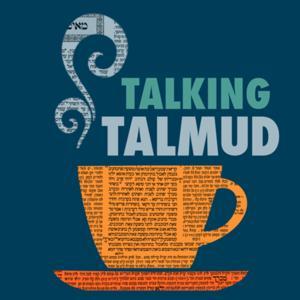Beit Shammai and Beit Hillel disagree regarding the law of a sadin (a linen garment) in the context of tzitzit. While Beit Shammai exempts a linen garment from the obligation of tzitzit to avoid the prohibition of shaatnez (mixing wool and linen), Beit Hillel holds it is obligated. Their reasoning is based on the textual juxtaposition of the laws of shaatnez and tzitzit, which teaches that the positive commandment (aseh) of tzitzit overrides the negative prohibition (lo taaseh) of shaatnez. Although the halakha follows Beit Hillel, Rabbi Eliezer ben Rabbi Tzadok testifies that anyone who attached tchelet (wool) to a linen garment in Jerusalem was viewed with wonder - as it caused onlookers to mistakenly believe shaatnez was generally permitted. Rabbi explains that the Sages eventually prohibited this practice because people did not know about the drasha permitting shaatnez and would come to think that shaatnez was permitted in general.
Since difficulties were raised against Rabbi's explanation, Rava and Rabbi Zeira offer four alternative reasons for why the Sages prohibited wool tzitzit on linen garments:
- Decree of "kala ilan": There is a concern that one might use a dye that looks like techelet but is not the authentic wool dyed with snail secretions. In such a case, the wearer violates the prohibition of shaatnez (wool and linen) without having fulfilled the mitzvah that allows it.
- Decree of "teima" (testing): A concern regarding the validity of the tzitzit - lest the techelet used was dyed during the "testing" of the color, which is invalid because it was not dyed specifically for the sake of the mitzva (lishma).
- Concern of "ta'aseh ve'lo min he-asui ": Rava and Rabbi Zera explain a concern that if the linen garment tears within three fingerbreadths of its edge, a person might sew it back up and leave the sewing threads to serve as tzitzit. This would be invalid because the Torah requires the mitzva to be actively made by attaching the strings to the garment, rather than utilizing threads that were already there for a different purpose.
- Decree of night garments: Since a garment worn exclusively at night is exempt from tzitzit, wearing wool strings on a linen night garment would constitute a shaatnez violation without any mitzva to permit it.
The Gemara discusses the definition of a garment obligated in tzitzit regarding a hybrid garment made of leather and fabric. Rava rules that we follow the primary material of the garment: if the body of the garment is fabric and the corners are leather, it is obligated; if the body is leather and the corners are fabric, it is exempt. Rav Achai disagrees, arguing that the status follows the material of the corners themselves.
Regarding the construction of the tzitzit, Rav Huna rules that if one attached tzitzit to a garment while it only had three corners and then completed the fourth corner afterward, the tzitzit is invalid due to "ta'aseh ve'lo min he-asui" (Make it, and not from that which is already made). The Gemara challenges this from the practice of the "Early Pious Ones," who would attach techelet after weaving only three fingerbreadths of the garment (when only two corners were in existence). The Gemara resolves this by understanding the custom of the pious ones to be performed at the end, when there were only three fingerbreadths left to weave (when the four corners were already in existence).
Finally, the Gemara challenges the invalidation of "ta'aseh ve'lo min he-asui" based on Rabbi Zera's ruling, which validates attaching new tzitzit onto a garment that already has tzitzit (and then removing the old ones). Rava suggests that because of the prohibition of "bal tosif" (do not add to the mitzvot), the act of attaching the strings before the obligation exists is not considered a significant "act." However, Rav Papa challenges Rava's reasoning, explaining that it depends on human intent: if one intends to cancel the first set of strings and replace them with the new ones, it is considered a significant act. This raises the question: if intent makes it a valid act, why was the case of attaching tzitzit before the garment was finished invalid in light of Rabbi Zeira permitting the case of the extra strings?




































